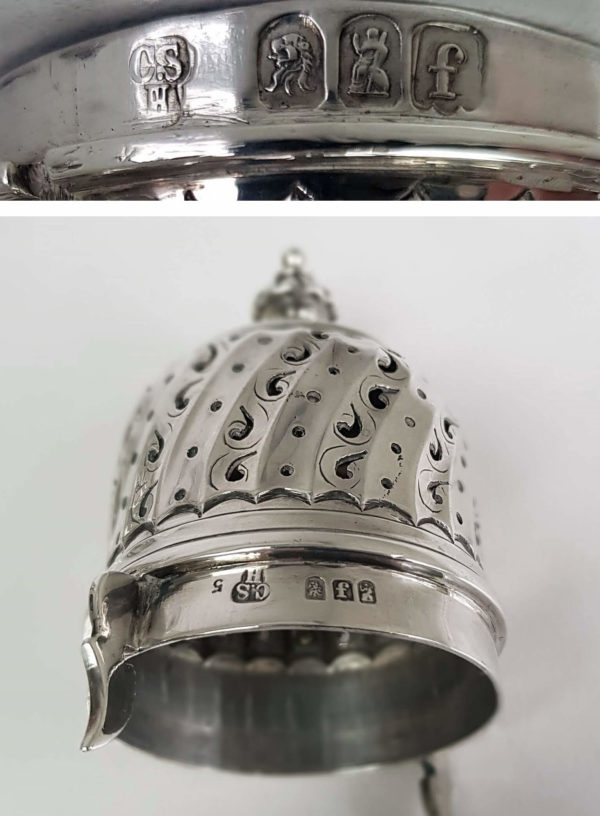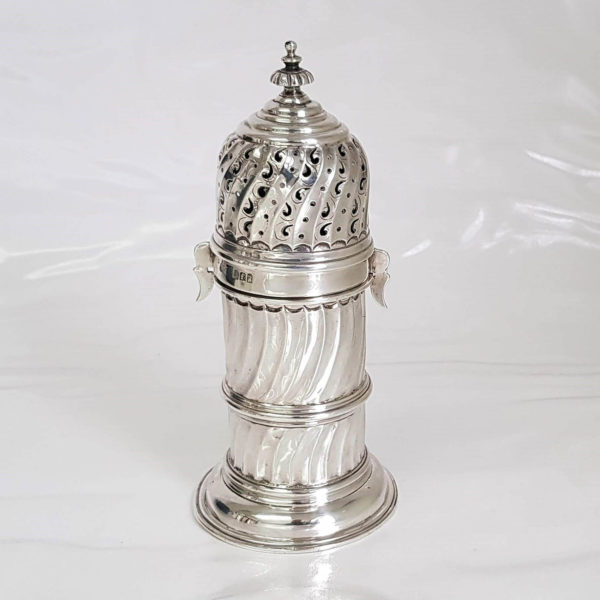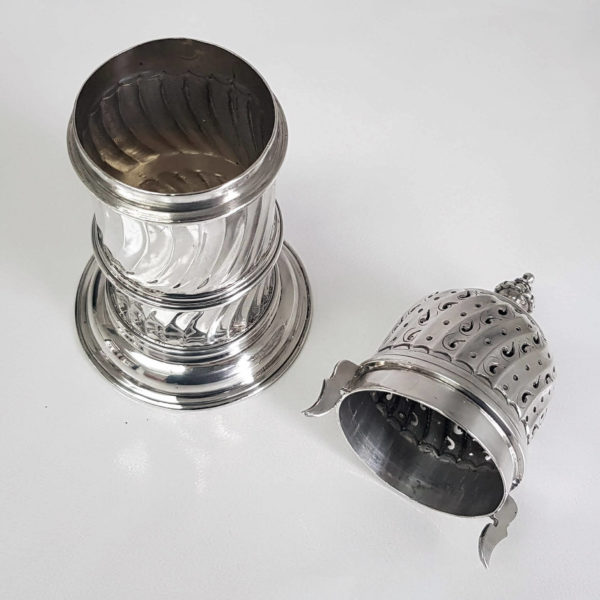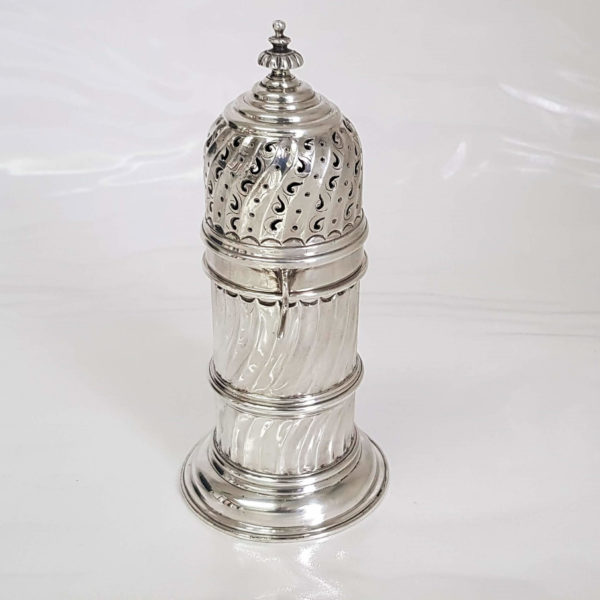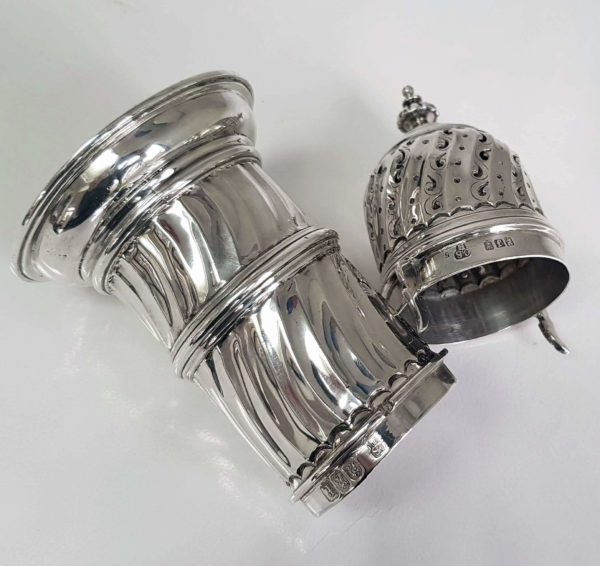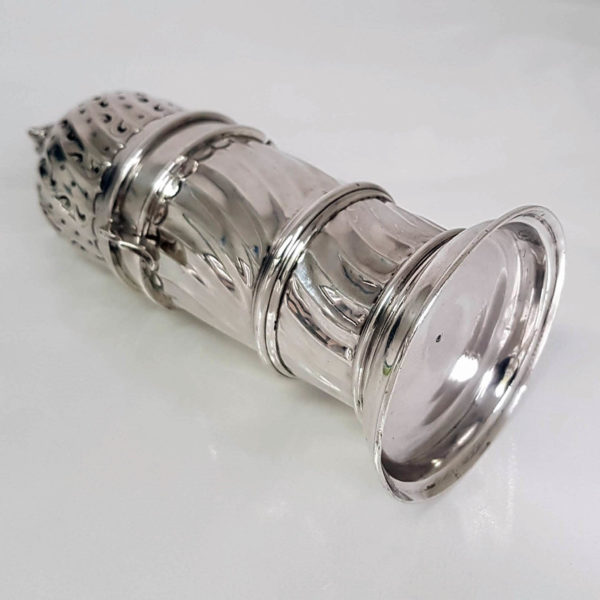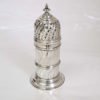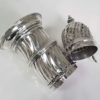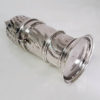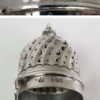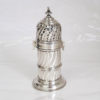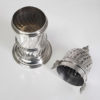Antique Silver Castor
SOLD
Stock: 9962
Date: 1901
Maker: Charles Stuart Harris
Country: England
An early 20th century silver muffineer in the traditional lighthouse design with a bayonet fitting, typical of the late 17th...
Description
Condition
The silver castor is in very good condition. The bayonet fitting works very well. Fully functional.
Maker Information
Maker: Charles Stuart Harris
Charles Stuart Harris, a London firm of silversmiths, started in 1817 by John Mark Harris as a producer of silver spoons and forks, and developed into a major manufacturer of silver and plated wares at home and abroad by the 1870s. Tt seems that the business was continued by John Robert Harris, probably John Mark Harris's son. In 1843 he moved the business to larger premises in Hatton Garden, London where he stayed until 1852. In 1852 the business passed to Charles Stuart Harris, who was registered as an electro spoon and fork maker, electro plater and gilder and manufacturer of plated wares and, most importantly, a silversmith. The company was registered in his name in 1881, and expanded into salvers and tea trays, tea and coffee services, cups, bowls, dinner wares, and condiment sets. Shortly afterwards the business acquired the two businesses of the Houle and Harris Brothers and in 1887 became the limited liability company C. H Harris Ltd, retailing also a wide range of related goods, such as wire and lace, silver, gold, diamonds jewellery, watches and cutlery. It is recorded that by 1900 C. H. Harris, Ltd. sent more silver to the Assay Office than any other maker. The prolific nature and scale of the company alludes to the success of both the financial faction of the business, as well as the ability and foresight to provide high quality, popular silverware which was practical for many middle class families. Harris retired shortly after the turn of the 20th century, and died on 23 September 1918. His business operated and traded under his name until its merger with I. Freeman and Company in 1933.
Our Guarantee
Customer satisfaction is our primary concern
All silverware on our website is checked thoroughly prior to offering it for sale and every product listing contains a condition report and details of the silver hallmarks.
All items offered on our website include:
- Free Shipping Worldwide
- Tracked and Insured
- 14 day no quibble money back guarantee
- We are accredited members of LAPADA and conform to their strict professional standards
- We dispatch 1-3 days after receiving cleared payments
More detailed information about deliveries, returns and how to pay is available in the Help section at the bottom of this page.
